Some Texans may be able to access medical marijuana through the state’s Compassionate Use Program (CUP), which is administered by the Texas Department of Public Safety (DPS). Only Texans with certain medical conditions will qualify.
The Compassionate Use Program (CUP) in Texas allows some physicians to prescribe low tetrahydrocannabinol (THC) cannabis for medical purposes. Low-THC cannabis comes from the plant Cannabis Sativa L and all parts of the plant and any resulting compounds, salts, resins, oils, and derivatives that contain no more than 0.5 percent by weight of THC are considered Low-THC.
Medical Marijuana Defense Lawyer in Denton, Frisco, Lewisville, Flower Mound, TX
If you have been arrested for a marijuana offense in Denton, or any of the surrounding areas in Texas, including Argyle, Aubrey, Carrollton, Denton, Flower Mound, Frisco, Justin, Krum, Lake Dallas, Lewisville, Little Elm, Pilot Point, Ponder, Roanoke, Sanger, or The Colony, contact the Law Offices of Richard C. McConathy. Our firm understands all of the marijuana laws in Texas and knows how to help people get access to medical marijuana.
Attorney Richard McConathy knows how overwhelming marijuana charges can be for people and works to ensure you are able to receive the most favorable court outcome. Call The Law Offices of Richard C. McConathy at (940) 222-8004 about your marijuana charges.
Medical Benefits of Cannabis
Ingesting cannabis plants has been proven by many studies to have several pharmaceutical applications. Some of them pertain to mitigating and managing pain.
The use of marijuana can also increase appetite, frequently a critical issue with chronic conditions. By law, CUP is limited to Texas patients with:
- Amyotrophic lateral sclerosis (ALS)
- Epilepsy
- Autism
- Seizure disorders
- Terminal cancer
- Multiple sclerosis
- Spasticity
- An incurable neurodegenerative disease
Under the Texas Administrative Code, incurable neurodegenerative disease is defined as a condition, injury, or illness occurring when nerve cells in the brain or peripheral nervous system lose function over time and for which there is no known cure. A qualifying physician under Chapter 169 of the Texas Occupations Code can prescribe low-THC cannabis to a patient with a documented diagnosis of one or more of the following incurable neurodegenerative diseases:
- Incurable Neurodegenerative Diseases with Pediatric Onset:
- Mitochondrial Conditions:
- Kearn Sayers Syndrome;
- Mitochondrial Encephalopathy Ragged Red Fiber;
- Mitochondrial Encephalopathy Lactic Acidosis Stroke;
- Neuropathy, Ataxia, and Retinitis Pigmentosa;
- Mitochondrial neurogastrointestinal encephalopathy;
- Polymerase G Related Disorders:
- Alpers-Huttenlocher syndrome;
- Childhood Myocerebrohepatopathy spectrum;
- Myoclonic epilepsy myopathy sensory ataxia; and
- Ataxia neuropathy spectrum;
- Subacute necrotizing encephalopathy, also known as Leigh syndrome;
- Respiratory chain disorders complex 1 through 4 defects: Co Q biosynthesis defects;
- Thymidine Kinase;
- Mitochondrial Depletion syndromes types 1 through 14:
- Deoxyguanisine kinase deficiency;
- SUCLG1-related mitochondrial DNA depletion syndrome, encephalomyopathic form with methylmalonic aciduria; and
- RRM2B-related mitochondrial disease.
- Creatine Disorders:
- Guanidinoacetate methytransferase deficiency;
- L-Arginine/glycine amidinotransferase deficiency; and
- Creatine Transporter Defect, also known as SLC 6A8.
- Neurotransmitter defects:
- Segawa Disease, also known as Dopamine Responsive Dystonia;
- Guanosine triphosphate cyclohydrolase deficiency;
- Aromatic L-amino acid decarboxylase deficiency;
- Monoamine oxidase deficiency;
- Biopterin Defects:
- Pyruvoyl-tetahydropterin synthase;
- Sepiapterin reductase;
- Dihydropteridine reductase; and
- Pterin-4-carbinolamine dehydratase.
- Congenital Disorders of Glycosylation.
- Lysosomal Storage Diseases:
- Mucopolysaccaridosis:
- Mucopolysaccharidosis Type I, also known as Hurler Syndrome or Scheie Syndrome;
- Mucopolysaccharidosis Type II, also known as Hunter Syndrome;
- Mucopolysaccharidosis Type III, also known as Sanfilippo A and B;
- Mucopolysaccharidosis Type IV, also known as Maroteaux-Lamy; and
- Mucopolysaccharidosis Type VII, also known as Sly.
- Oligosaccharidoses:
- Mannosidosis;
- Alpha-fucosidosis;
- Galactosialidosis;
- Asparylglucosaminuria;
- Schindler; and
- Sialidosis;
- Mucolipidoses:
- Mucolipidoses Type II, also known as Inclusion Cell disease; and
- Mucolipidoses Type III, also known as pseudo-Hurler polydystrophy;
- Sphingolipidoses:
- Gaucher Type 2 and Type 3;
- Neimann Pick Type A and B;
- Neimann Pick Type C;
- Krabbe;
- GM1 gangliosidosis;
- GM2 gangliosidosis also known as Tay-sachs and Sandhoff Disease;
- Metachromatic leukodystrophy;
- Neuronal ceroid lipofuscinosis types 1-10 including Batten Disease; and
- Farber Disease; and
- Glycogen Storage-Lysosomal: Pompe Disease.
- Peroxisomal Disorders:
- X-linked adrenoleukodystrophy;
- Peroxisomal biosynthesis defects:
- Zellweger syndrome:
- Neonatal Adrenoleukodystrophy; and
- D Bidirectional enzyme deficiency.
- Leukodystrophy:
- Canavan disease;
- Pelizaeus-Merzbacher disease;
- Alexander disease;
- Multiple Sulfatase deficiency;
- Polyol disorders;
- Glycine encephalopathy, also known as non-ketotic hyperglycinemia;
- Maple Syrup Urine Disease;
- Homocysteine re-methylation defects;
- Methylenetetrahydrofolate reductase deficiency severe variant;
- L-2-hydroxyglutaric aciduria;
- Glutaric acidemia type 1;
- 3-hydroxy-3-methylglutaryl-CoA lyase deficiency;
- Galactosemia;
- Manosidosis alpha and beta;
- Salidosis;
- Peripheral neuropathy types 1 through 4;
- Pyruvate Dehydrogenase Deficiency;
- Pyruvate Carboxylase Deficiency;
- Refsum Disease; and
- Cerebral Autosomal Dominant Arteriopathy with Sub-cortical Infarcts and Leukoencephalopathy.
- Fatty Acid Oxidation:
- Trifunctional protein deficiency; and
- Long-chain L-3 hydroxyacyl-CoA dehydrogenase deficiency.
- Metal Metabolism:
- Wilson Disease;
- Pantothenate Kinase Associated Neurodegeneration; and
- Neurodegeneration with brain iron accumulation.
- Purine and Pyrimidine Defects:
- Adenylosuccinate synthase Deficiency;
- 5-aminoimidazole-4-carboxamide ribonucleotide transformylase deficiency;
- Hypoxanthine-guanine phosophoribosyltransferase Deficiency also known as Lesch-Nyhan disease;
- Dihydropyrimidine dehydrogenase Deficiency; and
- Dihydropirimidinase Deficiency.
- Mucopolysaccaridosis:
- Mitochondrial Conditions:
- Incurable Neurodegenerative Diseases with Adult Onset:
- Motor Neuron Disease:
- Amyotrophic lateral sclerosis;
- Spinal-bulbar muscular atrophy; and
- Spinal Muscular Atrophy.
- Muscular Dystrophies:
- Duchenne Muscular Dystrophy;
- Central Core; and
- Facioscapulohumeral Muscular Dystrophy.
- Freidreich’s Ataxia.
- Vascular dementia.
- Charcot Marie Tooth and related hereditary neuropathies.
- Spinocerebellar ataxia.
- Familial Spastic Paraplegia.
- Progressive dystonias DYT genes 1 through 20.
- Progressive Choreas: Huntington’s Disease.
- Amyloidoses:
- Alzheimer’s Disease;
- Prion Diseases:
- Creutzfeldt-Jakob Disease;
- Gerstmann-Straussler-Scheinker Disease;
- Familial or Sporadic Fatal Insomnia; and
- Kuru.
- Tauopathies.
- Chronic Traumatic Encephalopathy:
- Pick Disease;
- Globular Glial Tauopathy;
- Corticobasal Degeneration;
- Progressive Supranuclear Palsy;
- Argyrophilic Grain Disease;
- Neurofibrillary Tangle dementia, also known as Primary Age-related Tauopathy; and
- Frontotemporal dementia and parkinsonism linked to chromosome 17 caused by mutations in MAPT gene.
- Synucleinopathies:
- Lewy Body Disorders:
- Dementia with Lewy Bodies; and
- Parkinson’s Disease; and
- Multiple System Atrophy.
- Lewy Body Disorders:
- Transactive response DNA-binding protein-43 (TDP-43) Proteinopathies:
- Frontotemporal Lobar Degeneration;
- Primary Lateral Sclerosis; and
- Progressive Muscular Atrophy.
- Motor Neuron Disease:

Medical Marijuana Prescriptions
Patients can obtain prescribed Low-THC cannabis when:
- They are a permanent resident of Texas
- They have one of the medical conditions listed above
- A CUP registered physician prescribes the cannabis
- The same qualified physician decides the benefits outweigh the risks
There is no age limit for prescriptions in these cases. Patients under 18, however, may require a legal guardian.
Getting a prescription will involve:
- A physician entering a prescription in the Compassionate Use Registry of Texas (CURT)
- The patient or legal guardian going afterward to any licensed dispensary to get the prescription
- The patient or legal guardian providing ID and patient’s, last name, date of birth, and last five digits of their Social Security Number
A physician’s qualifications to prescribe low-THC are outlined under Section A169.002 of Senate Bill 339. A physician will be qualified to prescribe low-THC cannabis to a patient with intractable epilepsy when the physician:
- is licensed in accordance with state law
- dedicates a significant portion of clinical practice to the evaluation and treatment of epilepsy
- is certified by the American Board of Psychiatry and Neurology in epilepsy, or neurology or neurology with a special qualification in child neurology and is otherwise qualified for the examination for certification in epilepsy, or in neurophysiology by the American Board of Psychiatry and Neurology or the American Board of Clinical Neurophysiology
A physician described by Section A169.002 can prescribe low-THC cannabis to alleviate a patient’s seizures if:
- the patient is a permanent resident of Texas
- the physician complies with the registration requirements of Section 169.004
- the physician certifies to the department that:
- the patient is diagnosed with intractable epilepsy;
- the physician determines the risk of the medical use of low-THC cannabis by the patient is reasonable in light of the potential benefit for the patient; and
- a second physician qualified to prescribe low-THC cannabis under Section 169.002 has concurred with the determination under Paragraph (B), and the second physician’s concurrence is recorded in the patient’s medical record
Collin County Resources for Medical Marijuana
Texas cancer patients and people with PTSD will soon be able to join state’s expanded medical marijuana program ― This is an August 11, 2021 article from the Texas Tribune that reported the Texas Compassionate Use Program would expand to include people with PTSD and cancer of all stages, allowing them to use “low-THC cannabis.” The state’s cannabis program served fewer than 6,000 people as of May, and the new law will expand to include veterans with PTSD like Bass and the estimated 114,000 Texans who have cancer, according to the Texas Department of State Health Services. The new Texas law will not only expand the state’s cannabis program but double the percent of THC allowed in products to 1 percent.
Texas Medical Marijuana ― On this state website, you can get an overview of the Texas medical marijuana laws that include definitions, an explanation of CURT, and a marijuana law guide. There is also information about the CUP that includes an overview, laws and regulations, and licensing and registration. You can also search CURT for a registered physician.
Find A Denton County Defense Attorney for Medical Marijuana Charges | The Law Offices of Richard C. McConathy
Contact the Law Offices of Richard C. McConathy today for a consultation about medical marijuana in Denton County in Texas that could help you avoid a marijuana possession charge. Richard McConathy is an experienced criminal defense attorney who makes every effort to find applicable defenses in these particular cases to have criminal charges reduced or even dismissed.
Contact The Law Offices of Richard C. McConathy at (940) 222-8004 or contact us online for a free consultation about your marijuana arrest in Denton, Frisco, Lewisville, Flower Mound, and surrounding areas of Denton County, Texas.


